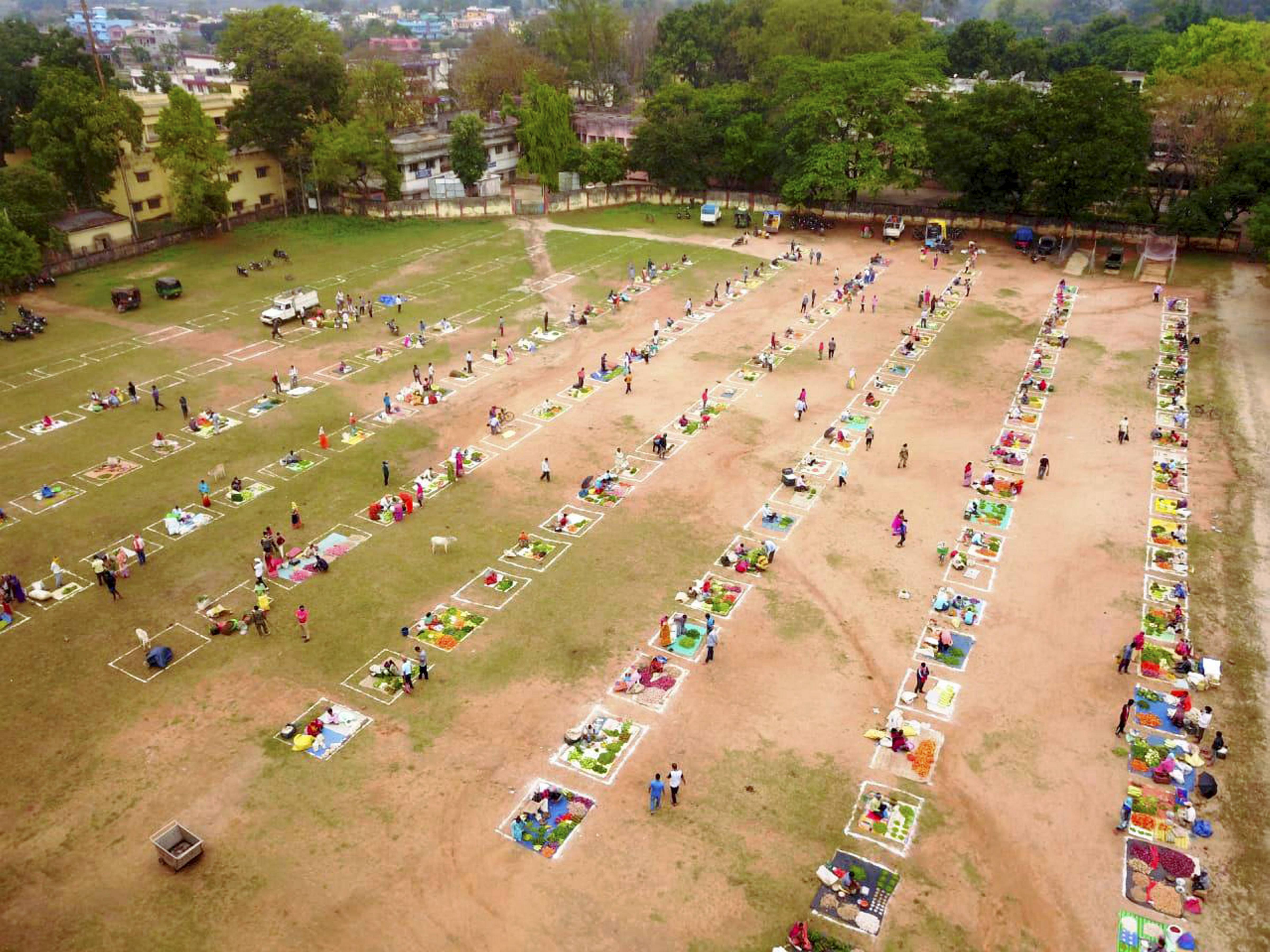Ask Anshu Kumar Sinha, a teenaged schoolboy from Palamau, what he understands by social distancing or its Hindi translation “samajik doori”, and he looks befuddled.
His friend, at Semar Tarn in Palamau’s Chainpur block, around 200km from Ranchi, grins without replying.
Their elders may not be any wiser.
Social distancing, the new global phrase, is an alien concept across Jharkhand’s hinterland.
S.N. Mishra, a priest of Bhagwan Sri Chitragupt Mandir at Nawa Toli in Daltonganj, when asked about social distancing, said he keeps the huge iron gate of the temple shut day and night to keep devotees at bay. However, he fumbles to explain samajik doori in plain Hindi.
Vegetable seller Bihari Ram is more concerned about his old corner of Namdhari Gurdwara in Daltonganj that he lost in the lockdown than to bother about samajik doori.
Social distancing means staying away from each other to prevent the infection from spreading. But people in general, and more so in small towns and villages, are hardwired to do just the opposite. Especially in times of crisis.
Across sabzi mandis, haats, bazaars and neighbourhoods, many people hear about social distancing but most don’t know what it means. A government schoolteacher said it was a new term in English — “the rich man’s language” — and even its Hindi translation did not make sense. “Doori (distance) from whom? People in close-knit societies don’t understand this alien concept.”
Palamau superintendent of police (SP) Ajay Linda recalled a recent instance. “On Saturday, I was on the road to check if the lockdown was followed when I saw two women walking hand in hand while talking. I asked them to stop and asked why they were so walking so closely together. Pat came the reply that they were sisters. They did not know what samajik doori meant. I had to explain why it was a precaution during the mahamari ( pandemic) in the local dialect.”
The senior cop said some equivalent translation of social distancing or samajik doori in local dialects might help rural people.
Asked if state police headquarters has found equivalents of social distancing in the commonly spoken Ho, Mundari, Santhali, Nagpuri, Bhojpuri or Maghee, inspector-general of police (human rights) Navin Kumar Singh said the question was valid.
“There is a strong need to disseminate the meaning of the term in a language that common people can understand,” Singh said.
Sadar sub-divisional police officer Sandip Kumar Gupta said groups of bathers in the Koyal river don’t even know they are violating rules.
“They say they’ve been bathing here all their lives. Women bathe and fill water in a huddle. Enforcing social distancing is tough,” Gupta said.
Nandu Kumar, a Bhojpuri-speaking youth, agreed. “I say bachkey ba to sut sut kar na chalee ( if you want to live don’t walk so closely together) or jo satega ghatey ga (those who stick together will perish),” he said, laughing. “These make more sense.”










